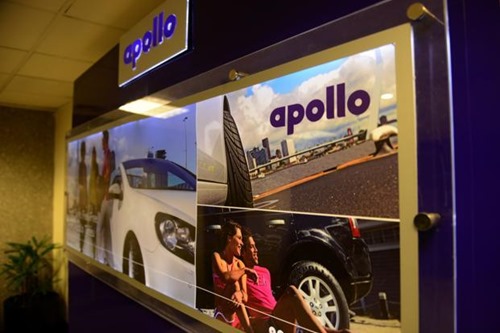Apollo Tyres Ltd reported better-than-expected earnings for the April-June quarter. Sales saw a marginal 0.8% growth from a year earlier. That is anaemic, but then, considering the sluggishness in the automobile industry, analysts were expecting the company to report a year-on-year (y-o-y) drop in revenue.
Sales were driven by the Europe and African operations. In spite of high competition, sales in South Africa grew by a healthy 13%. While consolidated sales remained flat, earnings before interest, tax, depreciation and amortization (Ebitda) grew at a faster 12% pace. That is because of low rubber prices, the key raw material for the tyre makers.
 Compared with a year ago, natural rubber prices during the quarter were 13% lower. This reduced the cost of raw materials as a percentage of sales by eight percentage points to less than 60%. The savings on raw material cost helped the company improve the operating profit margin by 1.22 percentage points to 12.3%. Other income, meanwhile, grew by 12%. This along with lower finance costs helped the company report a strong 20% growth in net profit.
Compared with a year ago, natural rubber prices during the quarter were 13% lower. This reduced the cost of raw materials as a percentage of sales by eight percentage points to less than 60%. The savings on raw material cost helped the company improve the operating profit margin by 1.22 percentage points to 12.3%. Other income, meanwhile, grew by 12%. This along with lower finance costs helped the company report a strong 20% growth in net profit.
Still, investors were not enthused. The stock slumped 4.51% to Rs.60.30 on Wednesday. The disappointment may have come from low margin at the European operations. Even though the region drove overall revenues during the last quarter, gross margins fell on a y-o-y scale. While that points to low realizations, the stock may continue to trail the broader markets in the short term.
Rubber prices are increasing in the domestic market. Compared with a year ago, RSS-4 grade rubber prices rose 8% in July, data from the Rubber Board show. Adverse weather conditions and heavy rains in some parts of Kerala have affected rubber production in the last 1-2 months. With supplies decreasing, the market is driving the benchmark RSS-4 grade rubber towards Rs.200 per kg.
Prices in the international market, on the other hand, continue to remain low. The same RSS-4 grade rubber is available in Bangkok for around Rs.152 per kg. Tyre companies may step up imports. But duties, freight and the sharp fall in rupee means that the potential cost saving can be limited.
To protect margins, the company may increase prices, said Sunam Sarkar, chief financial officer ofApollo Tyres. But that may not be easy, as the business environment is still muted. Automobile companies in India (the biggest revenue contributor by region) may resist the price hikes as sales continue to remain sluggish. But the management is hopeful of maintaining the margins at current levels. With the African market recovering and replacement market holding up it is also hopeful of sustaining sales and passing on the price hikes.
Source: livemint.com



























